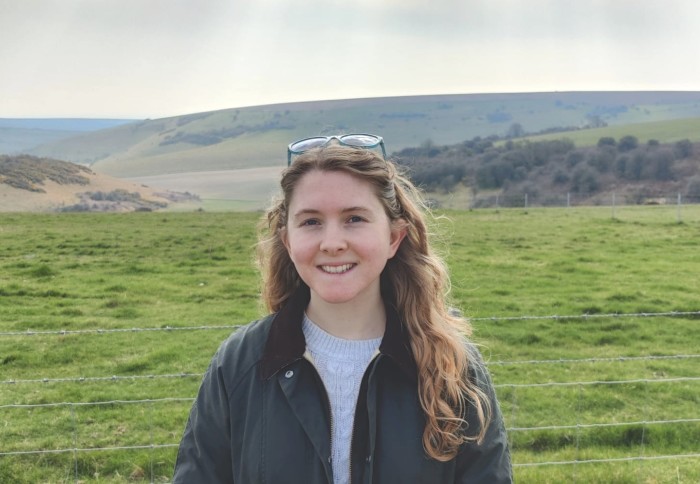CEP student wins Georgina Mace Prize from the British Ecological Society

Sara Bronwen Hunter has won a British Ecological Society journal prize for research published in 2021.
The British Ecological Society (BES) awards prizes for the best paper by an early career researcher in seven of their journals.
The winners receive a prize of £250, membership of the BES, a year’s subscription to the respective journal, and free attendance to the BES Annual Meeting to present their work and receive their award from the President of the BES.
The Georgina Mace Prize is awarded each year for the best paper in the journal Ecological Solutions and Evidence written by an early career author at the start of their research career. The winner is selected by the Senior Editors of the journal.
Sara Bronwen Hunter from the University of Sussex, who conducted the research at the Centre for Environmental Policy at Imperial College London, has been awarded this year’s Georgina Mace Prize for the article: 'Evidence shortfalls in the recommendations and guidance underpinning ecological mitigation for infrastructure developments'. She completed the work as part of the MSc Environmental Technology.
In the winning article, Bronwen and colleagues evaluated the weight of evidence supporting the ecological mitigation and compensation (EMC) measures used during infrastructure development to minimise its effect on protected species in the UK. The team identified 65 different mitigation measures across 50 housing applications and discovered that over half of the identified measures had not been empirically evaluated.
Bronwen said: “We hope that by highlighting the need for improved evidence-use our article will contribute to a more evidence-based approach in development mitigation. Further, it can provide key justification for future studies of the outcomes of mitigation.”
Below Bronwen answered some further questions from the BES.
Could you give us a bit of background about yourself and how you got into ecology?
I first became interested in ecology during my undergraduate degree in Biology at the University of Oxford but really decided I wanted to pursue research as a career during my MSc at the Centre for Environmental Policy, Imperial College London. Whilst my undergrad provided me with a good foundation in ecology, my MSc highlighted to me the complexity and challenges of implementing evidence-based conservation policy and motivated me to produce policy-relevant research. My paper is ES&E is actually drawn from my MSc thesis. Soon after finishing this I started a PhD at the University of Sussex and I'm now in my second year.
Have you continued this research and if so, where are you at now with it?
Having started a PhD project in a different topic area straight after my MSc, I haven't had the opportunity to continue with this research. However, I do think there is lots of potential to delve deeper into the effectiveness of ecological mitigation beyond protected species and explore further how we can improve monitoring to enhance the evidence base for ecological mitigation.
What did you enjoy most about conducting this research?
One of the things I realised from this project was that research doesn't need to be overly complex to be impactful. Conducting research for my MSc thesis during the COVID-19 lockdown meant there were huge constraints on data collection. However, I really enjoyed piecing together pre-existing data from the Conservation Evidence synopses, planning applications and guidance publications, to tell a story of evidence availability and use and in ecological mitigation.
Were there any funny experiences or surprising discoveries from this research?
One of the most surprising findings for me was the research and thematic gap that exists between academia and ecological practice. Whilst our study was able to quantify and provide evidence for this gap, conversations with practitioners during our research and after publication have really enlightened me to the constraints that make evidence generation and use by ecological practitioners challenging.
Given that ecological mitigation measures are some of the most commonly applied conservation measures, there is a definite need to strengthen collaboration between researchers, developers and practitioners to ensure that measures are evidence-based.
Article text (excluding photos or graphics) © Imperial College London.
Photos and graphics subject to third party copyright used with permission or © Imperial College London.
Reporter
Hayley Dunning
Communications Division